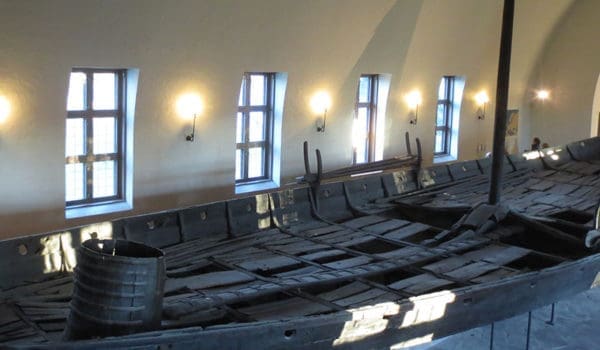Results from more than 30 cultural heritage projects were presented at the 2nd European Workshop on cultural Heritage Preservation (EWCHP) which took place at Kjeller last week. A study from England showed that a rise in the temperature due to climate change may contribute to the release of organic acids in the museums in a more serious amount than today.
Focus on energy efficient museums and historic builings
The 2nd European Workshop on Cultural Heritage Preservation (EWCHP) was held on 24th -26th September at Kjeller, Norway, gathering 75 scientists, conservators and stakeholders from nine European countries. Important topics for the preservation of the European cultural heritage, both outdoor and indoor, were presented on a macro as well as micro scale.
“There are still problems related to the effects from air pollution on different materials, but this year’s conference were more focused on the challenges related to how we can make the museums and historic buildings more energy efficient, contributing in addition to a much better indoor environment for the exposed objects” Elin Dahlin explains, Senior scientist at NILU and in charge of the conference.
Effects of climate changes
Another important topic which might have a big influence on the future preservation of the cultural heritage is the effects of climate changes. In the EU funded project “Climate for Culture” scientists have for the first time combined climate scenarios with building simulation models in order to assess future projections of outdoor climate changes on the indoor environments in historic buildings.
Another study made in the UK shows that a rise in the temperature due to climate change might release organic acids in museums in a more serious amount than today. This might have an effect on the cultural objects. NILU – Norwegian Institute for Air research is developing a new dosimeter called the “MEMORI dosimeter” which will be able to monitor this kind of changes in the indoor environment in the future.
Projects funded under the 7th Framework Programme
Results from more than ten projects funded under the 7th Framework Programme of the European Commission in the field of cultural heritage were presented, showing the success of the current European research programme. However, it is still uncertain if there will be funding for research on cultural heritage in the 8th EU Framework Programme for Research and Innovation (Horizon 2020).
The EWCHP conference showed that there is still a great need for research related to the preservation of the European cultural heritage.

